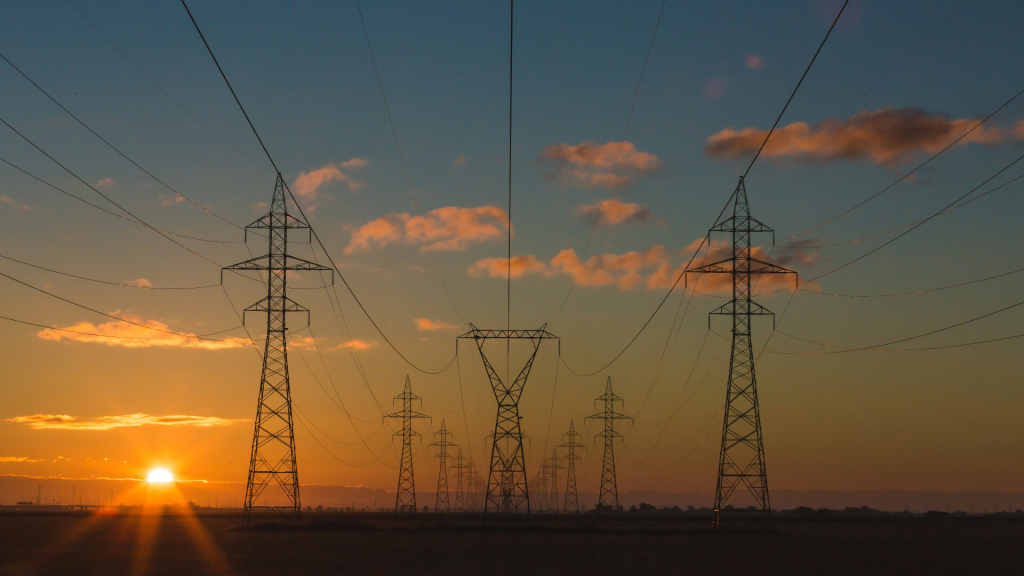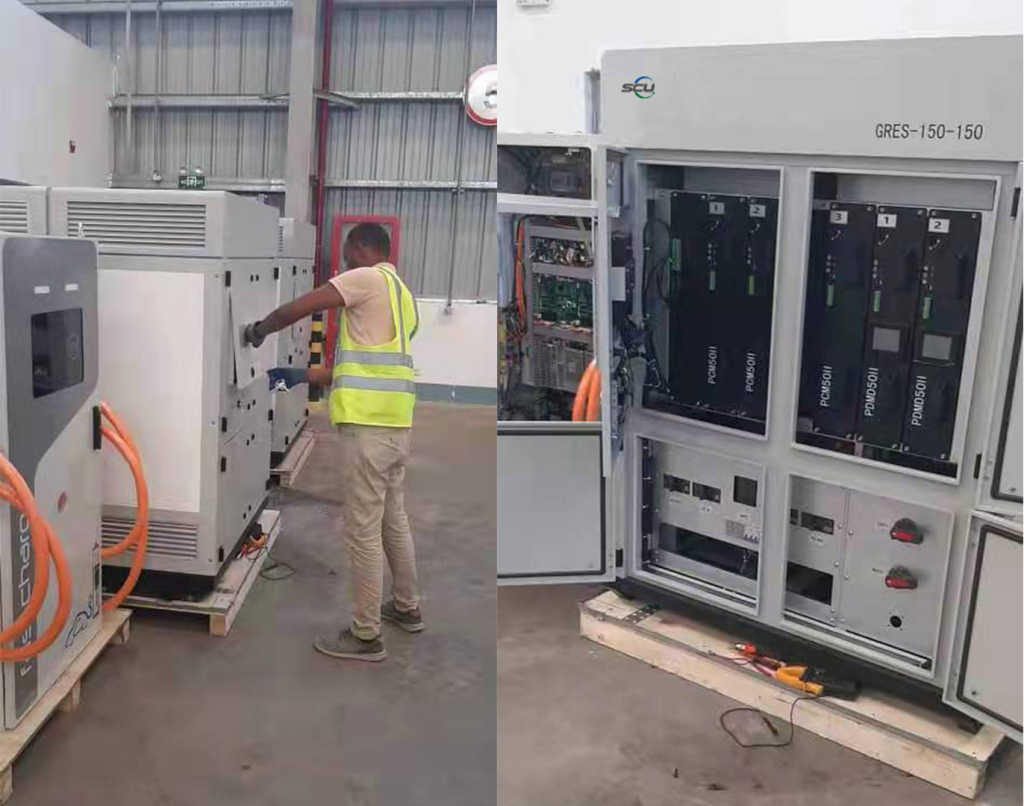Faced with the severe challenges of automobile emission pollution and fuel shortage, the Ethiopian government has responded actively by promoting the development of sustainable transportation by increasing the import of electric vehicles and electric buses. It is committed to creating a clean and green travel environment. However, this move highlights bottlenecks in infrastructure construction and power supply. SCU is actively involved in Ethiopia’s sustainable development plans.

Charging electric vehicles within a factory in Ethiopia has always been a critical problem. Due to insufficient infrastructure, it faces problems such as long charging distances and inconvenience. Even if EV chargers are installed under the current situation, they cannot be used normally. Under this urgent need, SCU is the key to providing EV charger and industrial energy storage system solution. By providing GRES (energy storage system) and EV chargers, SCU successfully improved the charging situation of electric vehicles in the factory, effectively solved the charging dilemma, and created a more convenient environment for the promotion of electric vehicles.
Solution:
Energy storage and EV charger integrated system
1 set of energy storage system GRES-150-150: Battery capacity: 150KWh, PCS capacity: 100KW
2 sets of EV chargers 60KW

The close integration of energy storage systems and EV chargers not only brings convenience but also successfully reduces the impact on the power grid. This has played a positive role in improving Ethiopia’s power infrastructure. At the same time, the application of energy storage systems provides flexible and efficient power management methods for internal equipment in the factory, successfully saving electricity bills and reducing costs for the equipment.
As a professional EV charger and energy storage system manufacturer, SCU provides energy storage and EV charger solutions for factories in Ethiopia to meet the charging needs of electric vehicles within the factory. Different from traditional EV chargers, the energy storage plus EV charger system combines energy storage technology, which can store electric energy during peak charging hours and then release the electric energy for charging when the grid load is low, thus reducing the impact on the grid and achieving a more efficient service. For smart and efficient energy use.
Considering Ethiopia’s national power situation, this plan is particularly practical. Ethiopia’s power supply is relatively unstable, and the introduction of energy storage technology can effectively balance the grid load and improve the reliability of power supply. This not only helps solve the instability when charging electric vehicles but also provides more reliable energy security for Ethiopia’s industrial development.

EV charger + Energy Storage System Advantage:
- Driven by the policy of peak and valley electricity prices, the addition of energy storage reduces charging costs and increases profit margins;
- Alleviating the impact of unstable power consumption on the power generation side during the peak charging station replenishment period, especially in response to a large number of fast charging layouts;
- Ensure the stability of the charging process and reduce the damage to vehicle batteries caused by sudden voltage instability.
Trend
The installation of mobile/distributed energy storage systems at and near EV chargers can alleviate the impact of random charging methods of electric vehicles on the power grid. The integrated EV charger system will play an important role in the design of future EV chargers.
Energy storage technology can smooth intermittent electric vehicle charging power fluctuations, enhance the power grid’s frequency regulation and peak shaving capabilities, reduce load peak and valley differences, and improve system efficiency and equipment utilization. Configuring distributed/mobile energy storage for EV chargers can increase the reserve capacity and reduce the power requirements, making it not limited by the grid capacity. By configuring different energy storage capacities, it can meet the charging requirements of different electric vehicles. Reduce the power investment in EV chargers.
Energy storage equipment suppresses charging harmonic injection, which can improve the security and stability of the power grid and improve the quality of energy supply. Therefore, optimizing the operation of energy storage EV chargers and power grids has very great practical and economic benefits.
